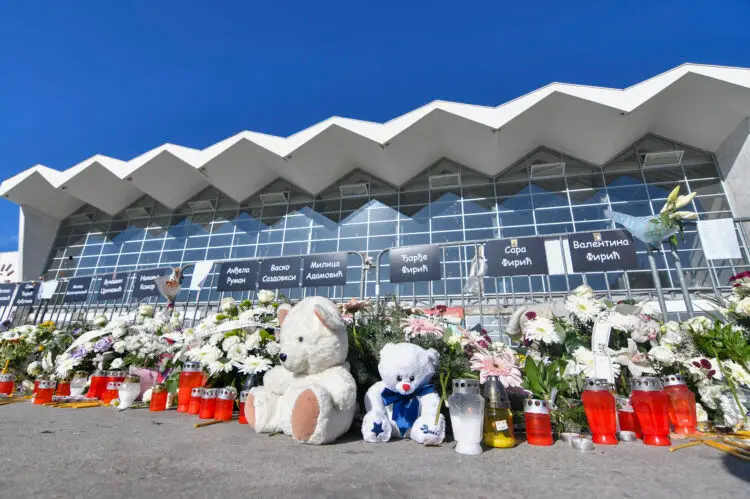The one-year anniversary of the Novi Sad train station roof collapse, which killed 16 people, drew massive attention from international media, framing the tragedy as a symbol of systemic corruption and state negligence in Serbia.
French outlet Le Monde reported that tens of thousands of people gathered in silence to commemorate the victims, highlighting that the collapse sparked one of the country’s largest protest movements, quickly led by students. The newspaper noted that for opponents of President Aleksandar Vučić, the tragedy epitomizes corruption affecting major infrastructure projects.
Spanish El País emphasized the long marches of students, many of whom walked hundreds of kilometers to attend the event, countering pro-government media narratives that portray them as “foreign-paid terrorists.”
German media also weighed in:
- Der Spiegel published a commentary titled “Europe Owes Serbs Much More”, stressing that the European Union shares partial responsibility for the persistence of authoritarian governance in Serbia.
- DPA reported that the protesters used 16 minutes of silence—one minute per victim—to honor the deceased, framing the tragedy as a catalyst for the largest and longest protests in modern Serbian history.
- ZDF highlighted that the roof collapse has become a symbol not only of the state’s failures but of an entire political system perceived as corrupt, arrogant, and dismissive of citizens. It noted that the protests now involve apolitical segments of society, including students, families, and schoolchildren, and that Vučić faces increasing pressure as his support erodes despite attempts to counter protests with conspiracy theories and repressive measures.
The coverage underscores that the Novi Sad tragedy has transformed from a local disaster into a broader political movement, challenging the concentration of power and demanding democratic reforms and new elections.






